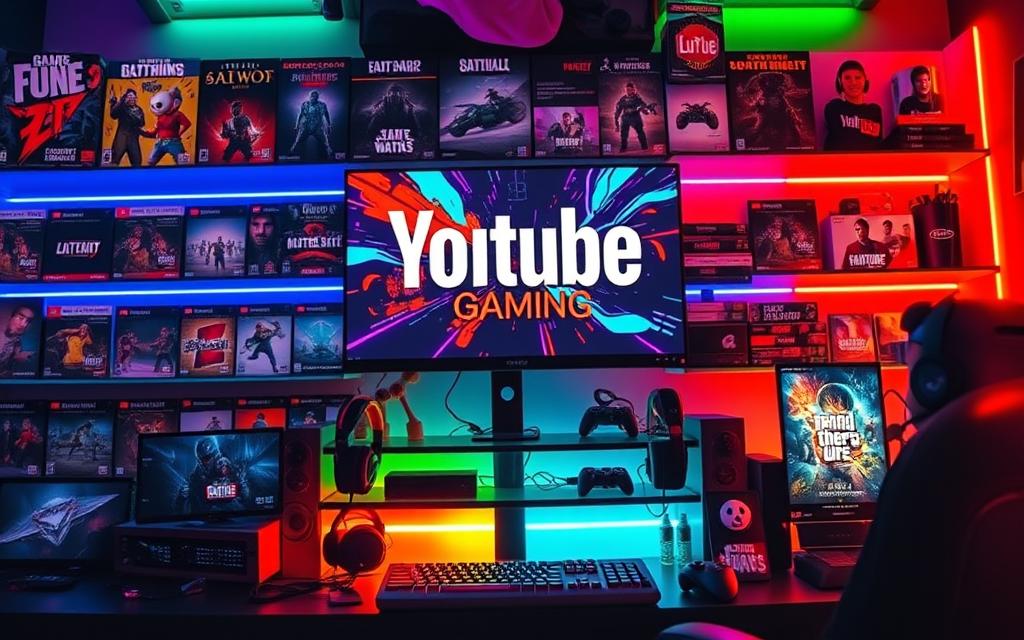Social media is key in today’s digital world. It’s essential for any brand or business to succeed. This guide will help you understand how to manage social media well. You’ll learn how to connect with your audience and grow your brand.
This guide covers the basics of social media management. You’ll learn how to create a great content strategy and use data to improve your marketing. It’s perfect for anyone looking to boost their brand’s online presence.
Understanding Social Media Management Fundamentals
Effective social media marketing starts with knowing the basics. It’s about creating content that fits each platform and understanding the role of a social media manager. These basics are key for businesses and individuals to use social networks well.
Key Components of Effective Management
Three main parts make up a strong social media strategy: content strategy, community management, and social media analytics. When these parts work together, businesses can connect with their audience and see real results.
Platform-Specific Best Practices
Every social media platform is different. Successful managers know how to tailor their approach for each one. This means making Instagram posts look great, starting conversations on LinkedIn, and using TikTok trends.
Role of a Social Media Manager
A social media manager does more than just post updates. They need to be good at content creation, community engagement, data analysis, and strategic planning. With these skills, they can spark meaningful conversations, build loyalty, and meet business goals.
| Key Responsibilities of a Social Media Manager | Required Skills |
|---|---|
| Developing and implementing a comprehensive social media strategy Creating engaging, platform-optimized content Monitoring and responding to audience interactions Analyzing social media performance and adjusting tactics accordingly Collaborating with cross-functional teams to align social media efforts | Excellent writing and communication skills Creativity and visual design aptitude Data analysis and interpretation capabilities Strong problem-solving and decision-making abilities Adaptability and a keen understanding of emerging social media trends |

Creating a Winning Content Strategy
Building a content strategy that connects with your social media followers is key. It’s about making content that’s engaging, valuable, and consistent. This content should grab your followers’ attention and encourage them to interact with you.
It’s important to mix up the types of content you share. Use a mix of text, images, videos, and infographics to meet different tastes. This keeps your social media lively and makes people look forward to your next post.
Using influencer marketing can also boost your strategy. Partnering with influencers lets you reach new people and build real connections. Adding social media ads to your plan helps you target specific groups, leading to better results.
Being consistent is crucial. Post regularly and keep your brand’s voice the same everywhere. This builds trust and keeps your content fresh in people’s minds, leading to more engagement.
A great content strategy starts with knowing your audience well. Create content that speaks to them and supports your business goals. This way, you can grow a strong online community and succeed on social media.

“Consistent, high-quality content is the foundation of a successful social media presence. It’s not just about posting, but about creating a compelling narrative that resonates with your audience.”
Social Media Analytics and Performance Tracking
In the fast-paced world of social media, knowing your data is key. Good social media management means understanding important metrics and how to track them.
Essential Metrics to Monitor
There are key metrics to watch in social media analytics. These include:
- Engagement rates: Likes, comments, shares, and clicks show how well your content connects with people.
- Reach and impressions: These numbers tell you how many people see your posts and their potential impact.
- Social media analytics: These metrics track how your social media profiles and channels are doing.
- Sentiment analysis: This helps you see how people feel about your brand online.
Tools for Measuring Success
There are many tools to help with social media analytics and online reputation management. Some top choices are:
- Google Analytics: It gives detailed data on who visits your site and how they act.
- Social media platform analytics: Tools built into platforms like Facebook, Twitter, and Instagram.
- Social media monitoring tools: Third-party platforms that offer deep analytics and insights.
Data-Driven Decision Making
With lots of data, social media managers can make smart choices. By looking at engagement, reach, and sentiment, you can improve your content and connect better with your audience.

“Data-driven decision making is the foundation of successful social media management. By closely monitoring key metrics, you can continually improve your strategy and achieve your marketing goals.”
Building and Engaging Your Online Community
In the world of social media, creating a strong online community is key for brands. It helps build lasting engagement and loyalty. By using good community engagement strategies, brands can grow their reach and get valuable insights through social listening.
To build a strong online community, it’s important to encourage real interactions. Ask your followers to share their thoughts and experiences. Run contests and answer their comments quickly. This helps people feel part of the community and gives you insights for your marketing.
Social listening is also crucial. It means watching what people say about your brand online and understanding their feelings. By keeping up with industry trends, you can find new opportunities and meet your community’s needs better.
| Technique | Description | Benefits |
|---|---|---|
| Interactive Contests | Organize engaging contests that encourage user participation and content sharing | Boosts brand awareness, increases follower engagement, and gathers valuable user-generated content |
| Responsive Customer Service | Provide prompt and personalized responses to customer inquiries and feedback on social media | Enhances customer satisfaction, builds brand loyalty, and demonstrates a commitment to social customer service |
| Influencer Collaborations | Partner with relevant industry influencers to leverage their reach and credibility | Expands brand visibility, taps into new audiences, and fosters community engagement |
By using these strategies and improving them, you can create a vibrant online community. This community is a big asset for your brand. It helps with community engagement, social listening, and top-notch social customer service.
“Building an engaged online community is not just about increasing your follower count – it’s about fostering genuine connections, understanding your audience, and delivering exceptional value that keeps them coming back.”
Advanced Social Media Management Techniques and Tools
In the fast-changing world of social media, it’s key to stay ahead. This part looks at advanced methods and tools for social media managers. They help manage workflow, handle crises, and plan content.
Automation and Scheduling Tools
Automation and scheduling tools are big deals in paid social advertising and social media monitoring. They automate tasks like posting, engaging, and reporting. This lets managers focus on big ideas. Tools like Hootsuite, Buffer, and Sprout Social make scheduling and analysis easier.
Crisis Management Protocols
Even with the best plans, surprises can happen on social media. It’s vital to have a strong crisis plan to protect your brand. This includes a clear communication plan and pre-approved responses. Regular social media monitoring and training help you be ready.
Content Calendar Development
Creating a detailed content calendar is a smart move for a strong social media presence. It helps plan your digital marketing content ahead of time. This way, you can post regularly and keep your content varied. Google Calendar, Trello, and Asana make planning and teamwork easy.
“Effective social media management is not just about posting content, but rather a strategic and proactive approach to building relationships and driving business results.”
Using these advanced methods and tools, social media managers can do more. They can work more efficiently, respond faster, and see better results for their paid social advertising and digital marketing.
Conclusion
In today’s fast-paced digital world, social media management is key for brands wanting to shine online. We’ve covered the basics, best practices, and advanced tips for handling social media. This guide aims to help businesses and marketers succeed in the changing social media scene.
We’ve talked about the core of social media management, creating a winning content plan, using analytics, and growing an online community. This guide has given you a clear path to success. By using these strategies, companies can improve their social media management, boost their brand management, and hit their digital marketing goals.
As the digital world keeps changing, it’s vital for experts to stay flexible and keep learning. Keeping up with new trends, platforms, and tools helps make smart choices and run effective social media campaigns. By taking a complete approach to social media, businesses can fully tap into these channels. This way, they can connect with their audience, build loyalty, and grow in meaningful ways.
FAQ
What is the role of a social media manager?
A social media manager takes care of a brand’s online presence. They create content strategies, make engaging content, and talk to the community. They also check how well things are doing and run paid ads.
How can I create a winning content strategy for social media?
To win at social media, make sure your content is top-notch and fits your audience. Mix up your content types and work with influencers. Also, make sure your posts are tailored for each platform. Always check how well your content is doing and tweak your strategy as needed.
What are the essential metrics to monitor for social media success?
Watch your follower numbers, how much people engage with your posts, and if they click on your links. Also, see if people visit your website from social media and if they buy anything. These numbers help you see if your social media is working and guide your future plans.
How can I build and engage an active online community?
To grow a strong online community, be real and quick to respond to comments. Encourage people to share their own content. Use tools to listen to what your audience wants and make your content and community plans accordingly. Always provide top-notch customer service to keep your community loyal.
What are some advanced social media management techniques and tools?
For advanced management, use tools to automate and schedule your work. Plan out your content with a detailed calendar. Also, run smart paid ads and have a plan for any crises that might happen. This helps keep your brand safe and strong.








